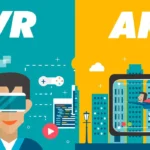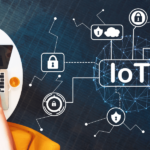
In recent years, the concept of the metaverse has captured the imagination of technologists, futurists, and enthusiasts alike. Often portrayed in science fiction novels and films, the metaverse represents a collective virtual space where users can interact, create, and explore immersive digital environments. As this vision inches closer to reality, it’s imperative to delve into the origins, current developments, and potential implications of the metaverse for technology and society.
Origins of the Metaverse:
The term “metaverse” was coined by author Neal Stephenson in his 1992 science fiction novel “Snow Crash,” depicting a sprawling virtual universe where users navigate through interconnected virtual environments. Since then, the concept has evolved from a fictional construct to a tangible vision shaped by advancements in virtual reality (VR), augmented reality (AR), and other immersive technologies.
Current Developments in the Metaverse:
Today, the metaverse is taking shape through a convergence of various digital platforms, gaming environments, and social networks. Leading tech companies such as Meta (formerly Facebook), Epic Games, and Roblox are spearheading initiatives to build expansive virtual worlds where users can socialize, work, play, and even conduct business transactions.
For instance, platforms like Decentraland and Second Life offer users the ability to purchase virtual land, build customizable environments, and engage in virtual commerce and social activities. Meanwhile, multiplayer online games like Fortnite and Minecraft serve as fertile ground for experimenting with metaverse-like experiences, blurring the lines between gaming, entertainment, and social interaction.
Implications for Various Industries:
The rise of the metaverse carries profound implications for a wide range of industries:
- Gaming Industry: The metaverse represents the next frontier for gaming, offering unprecedented opportunities for immersive gameplay, user-generated content, and virtual economies powered by blockchain technology.
- Social Media and Communication: Social media platforms are evolving into metaverse-like environments, enabling users to interact with friends, attend virtual events, and explore shared digital spaces in real-time.
- Entertainment and Media: The metaverse promises to revolutionize entertainment experiences, from virtual concerts and immersive storytelling to interactive experiences that blur the boundaries between fiction and reality.
- Education and Training: Virtual classrooms and training simulations within the metaverse offer new avenues for experiential learning, remote collaboration, and skill development across diverse domains.
- Commerce and Business: The metaverse presents opportunities for virtual storefronts, digital asset trading, and immersive shopping experiences, reshaping the future of e-commerce and digital marketing.
Challenges and Considerations:
Despite its potential, the metaverse also raises critical questions and challenges, including privacy concerns, digital equity issues, content moderation, and the need for interoperability standards across platforms. Additionally, ensuring inclusivity, accessibility, and ethical use of metaverse technologies will be essential to harnessing its benefits while mitigating potential risks.
Conclusion:
As the metaverse continues to evolve from concept to reality, its impact on technology and society is poised to be transformative. By exploring its origins, current developments, and potential implications across industries, we can better understand the opportunities and challenges presented by this emerging digital frontier. Whether it’s redefining how we socialize, work, learn, or engage with entertainment, the metaverse represents a paradigm shift that promises to reshape the way we experience and interact with the digital world.
The journey into the metaverse has only just begun, and the possibilities are limited only by our imagination and ingenuity.



